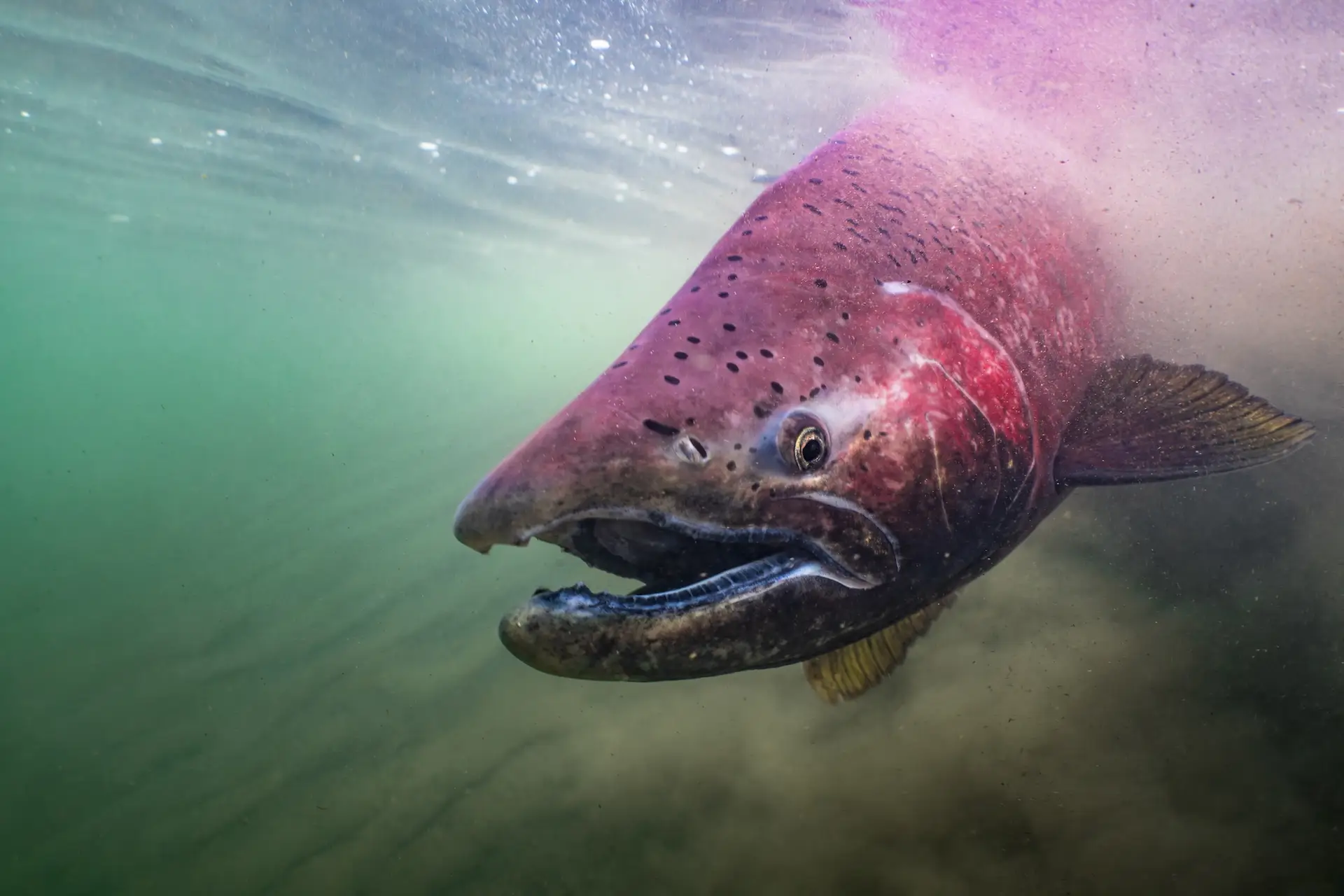
PDF Version of this Press Release
January 10, 2024— Wild Fish Conservancy filed a petition today calling for federal protection of Alaskan Chinook, also known as ‘king’ salmon, under the U.S. Endangered Species Act. This emergency action is being taken in response to the severe decline and poor condition of Chinook populations throughout the state of Alaska.
The proposed safeguards would increase protection for imperiled Chinook populations from the Canadian border north to the Aleutian Islands, including watersheds of Southeast, Cook Inlet, and Southcentral Alaska.
“For decades, scientists have been sounding the alarm that Alaska’s Chinook are in dire trouble,” says Emma Helverson, Executive Director of the Wild Fish Conservancy. “Despite existing management plans and years of efforts by the state of Alaska, Chinook salmon continue to decline in abundance, size, diversity, and spatial structure throughout the state. Through this action, we are asking the federal government to undertake a formal status review and implement protections warranted under the Endangered Species Act, including designating critical habitat protections, to ensure the survival of these iconic fish.”
Data from the State of Alaska shows the majority of Chinook populations throughout the state have experienced significant decline. Over the last decade, many populations have been recognized by Alaska as stocks of conservation concern, arising from the chronic failure to maintain minimum population goals despite regulatory actions. Recent declines have been so severe that both tribal and non-tribal subsistence Chinook fisheries have been closed in many parts of Alaska.
“Most people are unaware that there are Chinook populations in Alaska in far worse condition than Chinook in other parts of the Pacific Northwest that already receive protection under the Endangered Species Act due to their severe condition,” says Conrad Gowell, a biologist with Wild Fish Conservancy and co-author of the petition. “Ironically, certifiers and the seafood industry are leading concerned consumers to believe Chinook from Alaska are sustainable, when in fact they are disappearing before our very eyes. No one wants to be eating the last wild Chinook from any river.”
Persistent threats to Alaskan Chinook include mixed-stock commercial and sport fishing (which cannot avoid killing at-risk populations or immature salmon), bycatch in industrial trawl fisheries, habitat threats from climate change and extractive industries such as logging and mining, as well as competition from hatchery fish in both marine and freshwater environments. These threats come from both sources within Alaska and beyond.
Founded in 1989, Wild Fish Conservancy is a nonprofit conservation organization working from California to Alaska to preserve, protect, and restore the Pacific Northwest’s wild fish and their ecosystems, through science, education, and advocacy.
“The positive news is that many of the challenges facing wild Chinook have known solutions that could be incorporated into a recovery plan,” says Gowell.
For example, Wild Fish Conservancy has been advocating for calling for expanding marine protection along the migratory corridor and the nursery rearing environment salmon need in the ocean, habitat restoration and protection efforts that allow fish to adapt to a changing climate, and a shift away from mixed-stock ocean fisheries to fisheries in or near rivers where salmon return. This transition is needed to protect at-risk salmon populations and ensure enough fish return to their spawning grounds.
“I strongly encourage the public to read the entirety of the petition. The data collected by the State of Alaska on the status of Chinook populations speaks strongly,” says Helverson.
Specifics on the data submitted, frequently asked questions, and the full petition are available on Wild Fish Conservancy’s website. Information on the federal listing process under the Endangered Species Act is available on NOAA Fisheries’ website.
###
Contacts:
Emma Helverson, Executive Director, Wild Fish Conservancy, [email protected], 484-788-1174
Conrad Gowell, Biologist, Wild Fish Conservancy, [email protected], 971-237-6544
Photo: Alaskan Chinook by Conrad Gowell